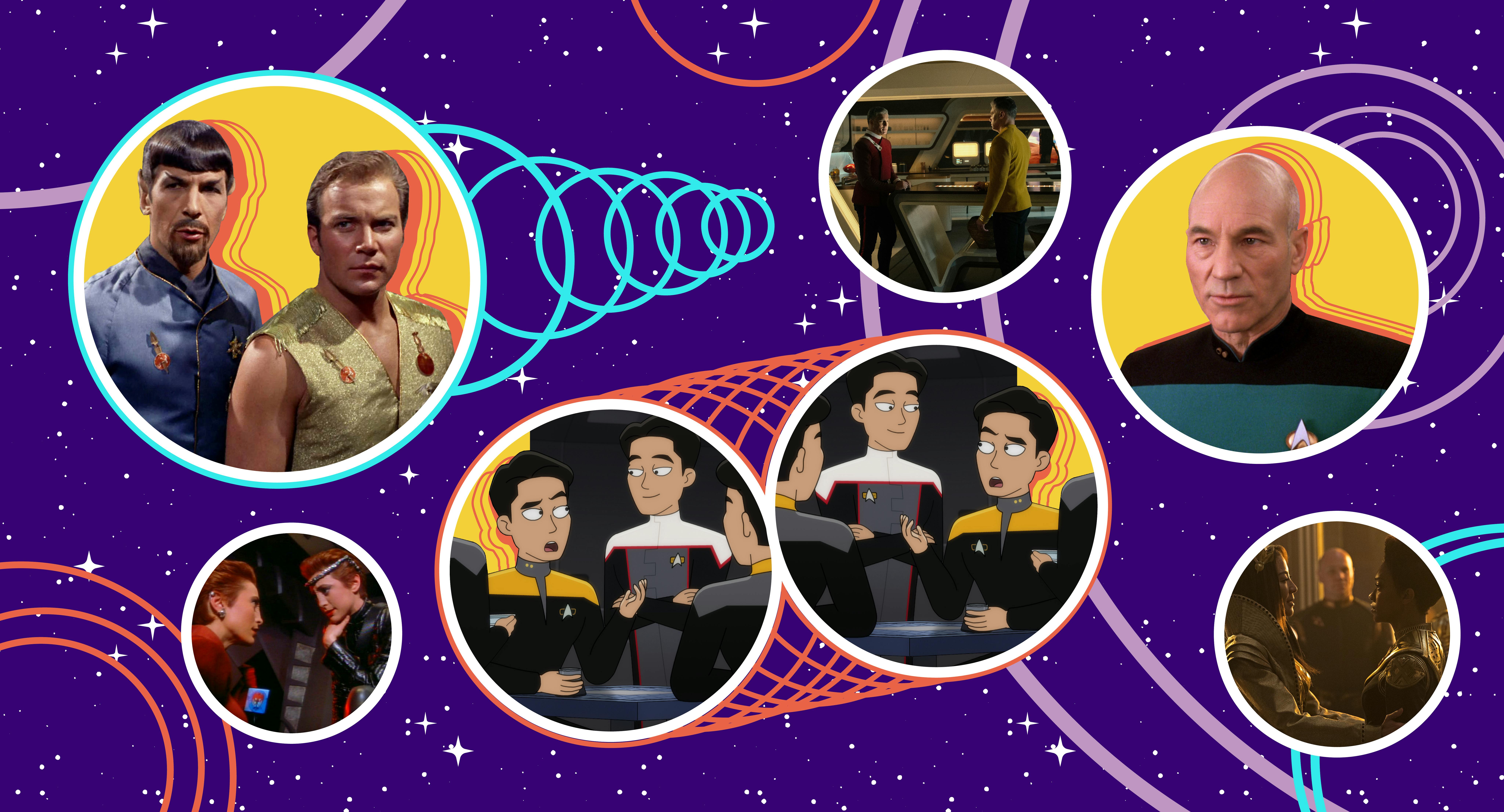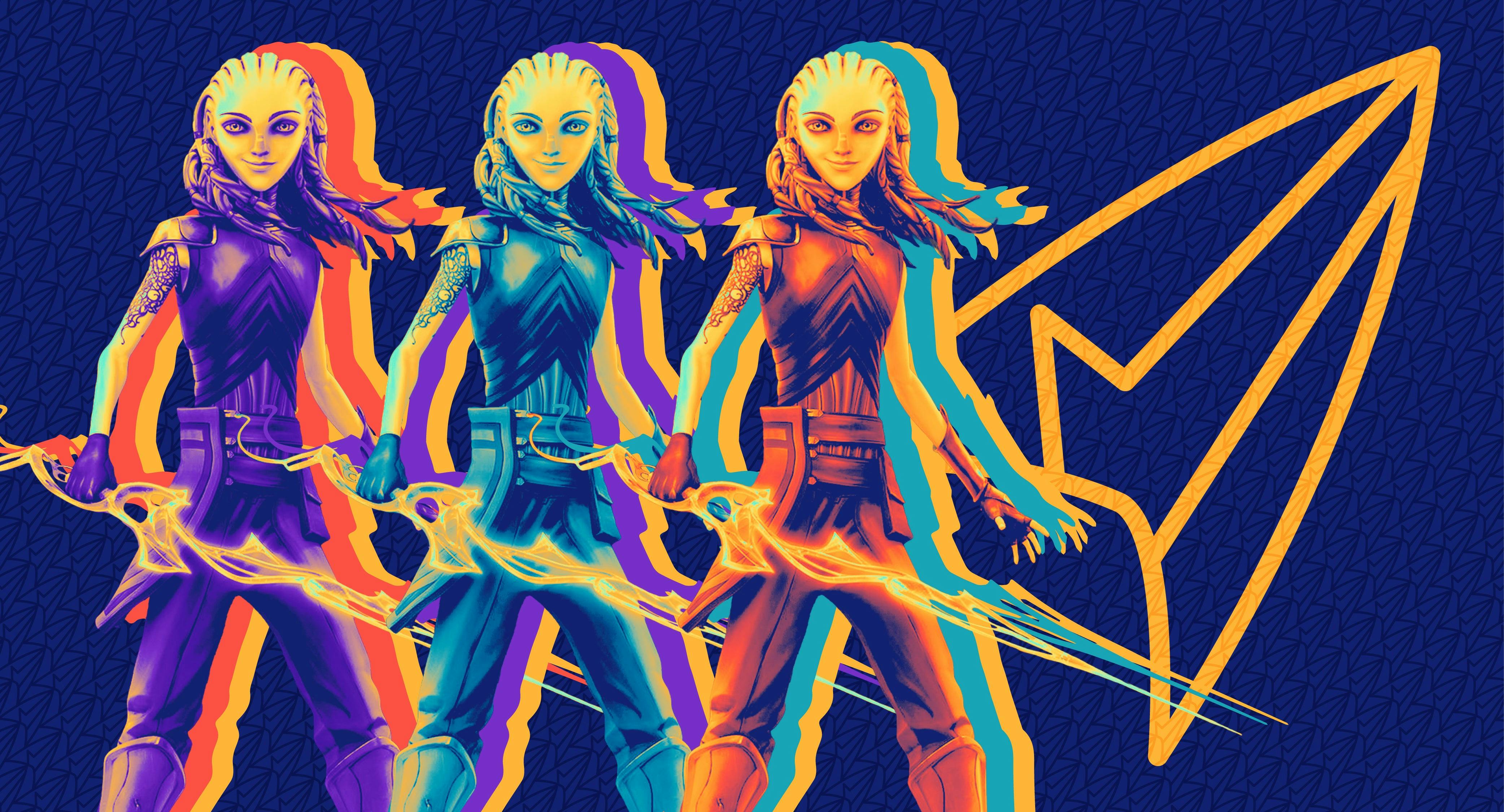Published Jan 17, 2025
How Captain Janeway Became Star Trek's Caretaker
Janeway defied tropes to become a caretaker and leader for generations.
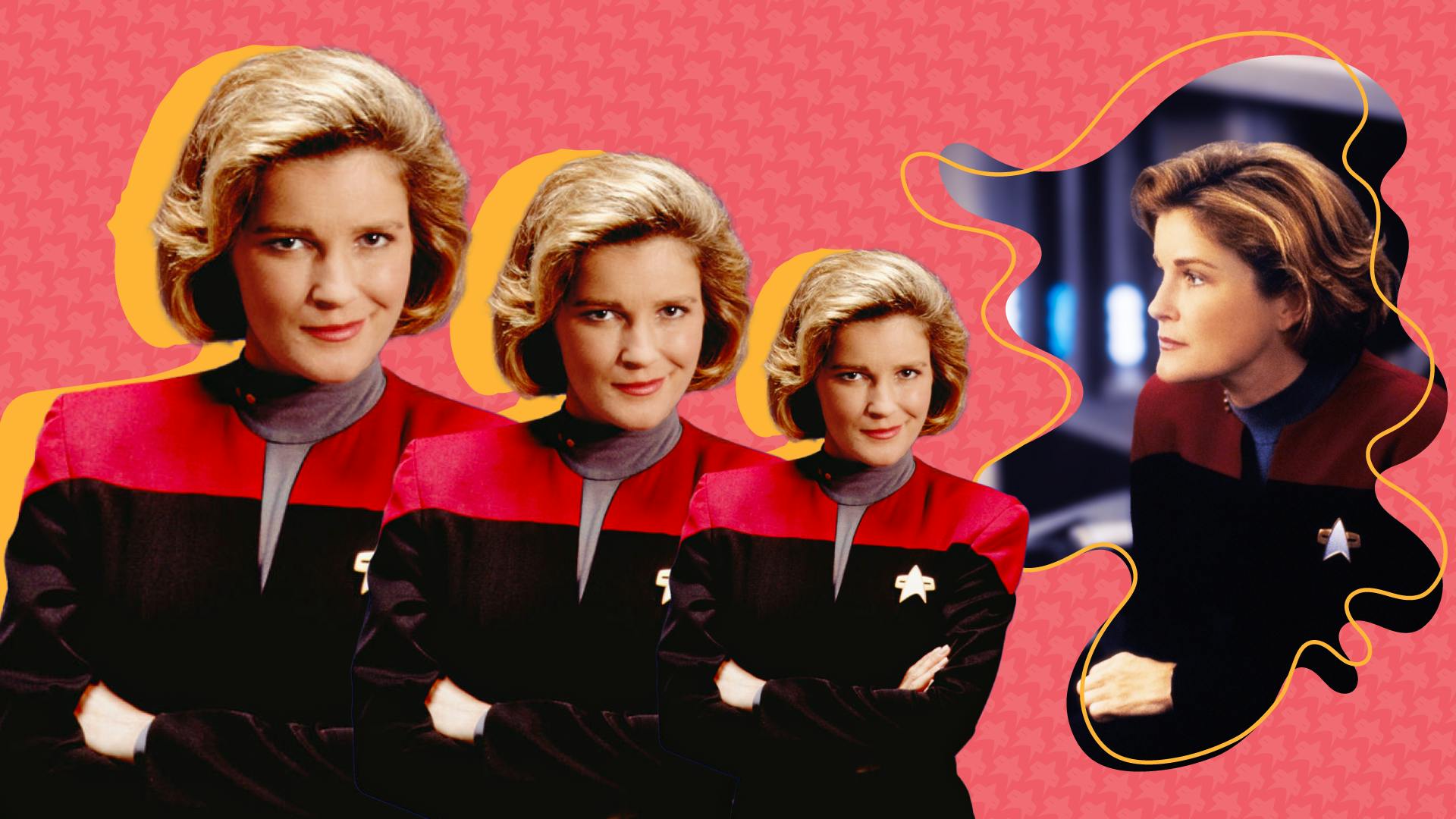
StarTrek.com
Captain Kathryn Janeway came into my life, when I was an angry teenager, trying to prove myself to the world. She's had a bigger influence on me and some of my life choices than I thought was possible.
While we imagine that the Federation has a world view of a better future, all Star Trek is written in the present; in the now that we know. And for more than 50 years, Star Trek has followed the changes in our own society, especially with regards to on-screen depictions of gender and archetypes. For the 1990s, that meant introducing a woman as captain who didn't match any of the other women we usually saw on television.
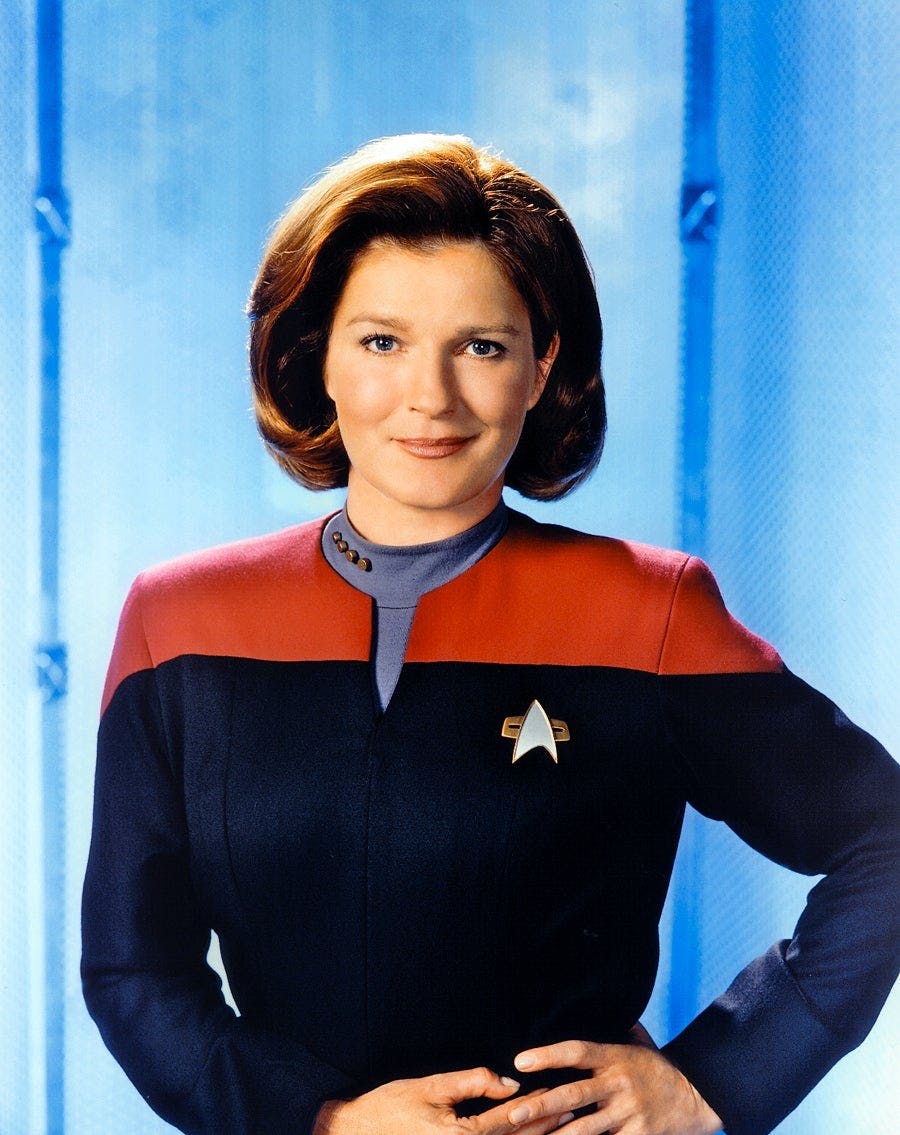
StarTrek.com
While Western storytelling was full of the archetypical stereotypes — maiden, mother and crone, gave us a career woman. While Janeway consistently proves her ability to make clear cut decisions, she is not portrayed as being emotionless or cold, as the media typically portrays career women to be. Critics at the time judged Janeway for her emotional episodes, not wanting the first woman leader in Star Trek to be a negative depiction. While she was a woman, most of her behavior was not defined by gender throughout the series, setting her apart from the women of and who were her counterparts at the time. Even the other women on Voyager had traditional feminine pursuits during its series run. Yet every time Janeway would display a trait considered feminine, both cast and critics complained.
With 2020's hindsight (pun intended), I'd argue that those pesky emotions were actually what made Kathryn Janeway great, and a captain most worthy of modeling oneself upon.
In the first Voyager episode "," Janeway cements the core of her leadership intentions, "We are their commanding officers, we are entrusted with their safety. They are our responsibility." Janeway has no sense of glory or self-gratification; she's a scientist, an explorer, a teacher, and a guide. She's also a friend, a family member, and a leader. Janeway, simply put, is the archetype of a Caretaker.
Second Chances
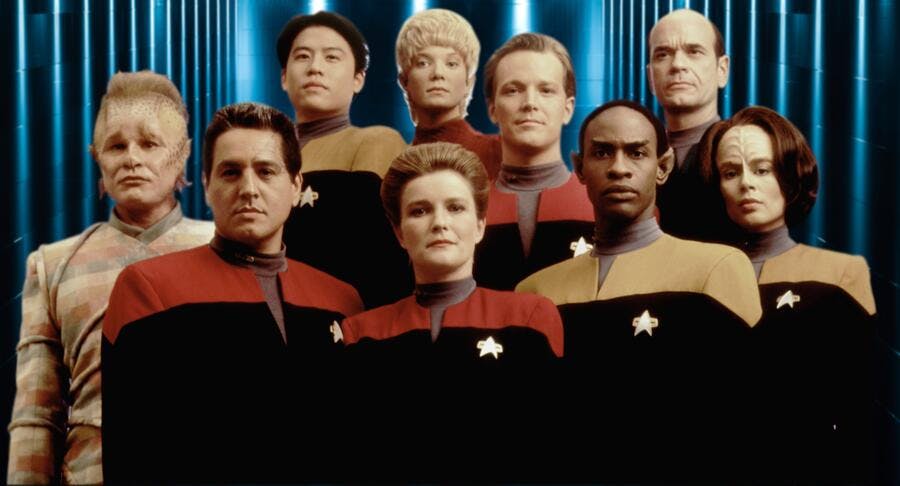
StarTrek.com
Janeway leads a crew of Starfleet's least likely heroes — she picked up Tom Paris from prison, and Chakotay and B'Elanna Torres from the Maquis. Neelix was a scavenger who lied to the Voyager crew to manipulate them into rescuing Kes, and Seven of Nine used to be Borg. In appointing Torres as chief engineer, Janeway even admits her own mistake in judging a book by its very angry cover.
In "," Janeway asks Tuvok to instruct some wayward Maquis into the ways of Starfleet. Not only does she defer to the former Starfleet instructor's experience in the matter, but she also gives him excellent advice, "It's not fair to expect Starfleet behavior from people who never went to the Academy." And that they, as officers, need to earn the respect of the crew. Janeway doesn't assume that her position gains automatic respect. She knows that it's Starfleet that needs to show up for the Maquis crewmen, not the other way around.
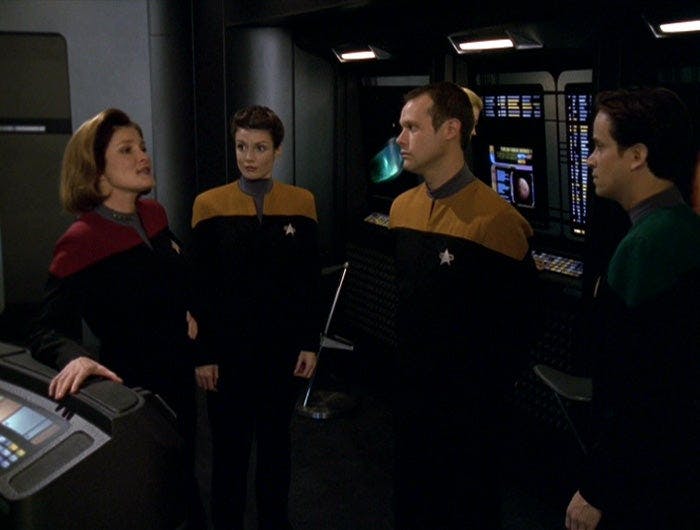
"Good Shepherd"
StarTrek.com
A similar situation occurs years later in "," when a few crew members are underperforming, she takes them on an educational Away Mission, in order to get to know them better and see how she can help them gain both skills and confidence.
Janeway listens to her crew, and understands that their point of view might be different than her own; that's a good thing. She puts her trust in people, who have not only learned from their unique paths in life, but who are better people because of those paths. The role of a captain doesn't always mean that you're right or that you should be the one leading the way on every mission. Janeway is a great captain because she knows when to take a step back and let others come into who they are.
"Delete the Wife"
While accepting that the Voyager is going to become a generational crew, Janeway is left with a dilemma first encountered in "," the episode which gave us the iconic coffee in that nebula quote. But the episode is not about the coffee. In her Captain's log, she realizes that she is lonely and has been distant from her crew. With this journey home, she will have to learn how to get to know them. And as Harry Kim says to Tom Paris, "Who is she supposed to get chummy with out here? It's not like there are other captains or admirals around."
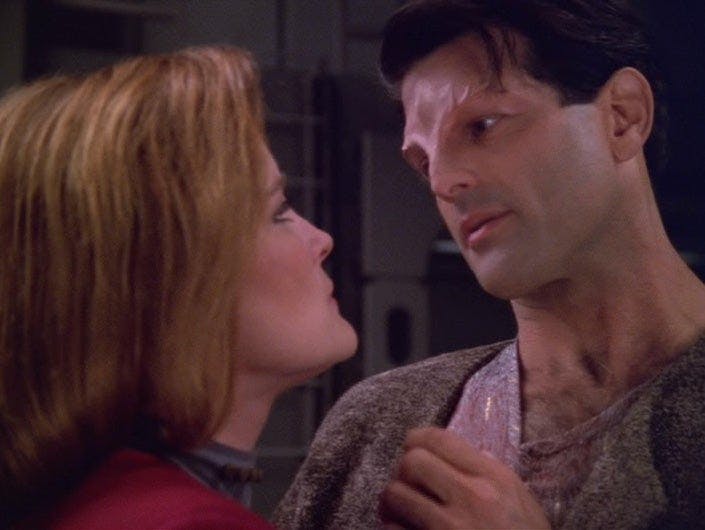
"Counterpoint"
StarTrek.com
Throughout Voyager, Janeway never embarks on a romantic relationship. While dating one's crew is against protocol, she could give herself the captain's approval, but she doesn't. This is not to say that she's never been in love; "Caretaker" reveals her talking to a significant other who is watching her dog while she's away. Throughout Voyager's journey home, she never falls in love with a crew member or with anyone she encounters on her travels. However, a brief and risqué encounter with Inspector Kaskyk in "" hints at Janeway's flirting abilities. Still, her lack of romance sets her apart from other captains at the time.
She's content with her preferred holonovels and their fictional characters, especially the charming Irish bartender in "." It's here where she famously deletes his wife from the program, settling into the idea that a fictional man is good enough. This captain has other things to prioritize over the notion of romantic partnerships. She was captain first and Kathryn second. She even entered into friendships with the crew in that order, always slightly at a professional distance.
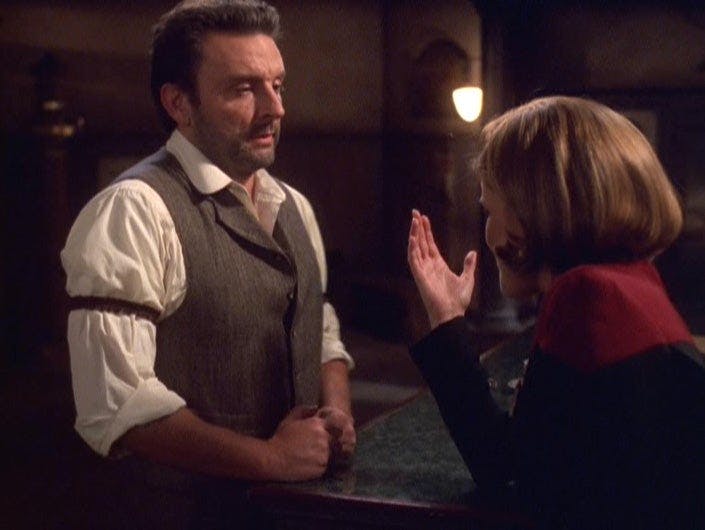
"Fair Haven"
StarTrek.com
In current Star Trek series, we meet the women Janeway led the way for — Captain (and Emperor) Philippa Georgiou, Captain Michael Burnham, Vice Admiral Katrina Cornwell, Captain Carol Freeman, and Lieutenant Commander Una Chin-Riley. All of them have come a far way from the outdated ideals presented in The Original Series’ finale episode, “Turnabout Intruder,” which claimed women aren’t fit to be Starfleet leaders because they are too emotional. Michael Burnham's emotions might guide some of her choices, but it is her capacity for love that’s her defining trait. And like Janeway, Burnham leads a crew very far away from home that becomes a family, much like the Voyager did.
Janeway's lack of romance kept the focus on her as an individual, without the attachment to another. During the 1990s, any relationship would have taken focus away from that. Thankfully, times have changed; not only does Burnham fall in love (twice), but Freeman is a captain and a mom on the same ship.
While Star Trek's male officers all had sexual and romantic relationships, Janeway's lack of romance not only emphasizes her role as a Caretaker who puts the crew and mission before her own needs, but it leads the way for modern women characters to be equal to their male counterparts.
Aunt Kathy and the Captain's Assistant
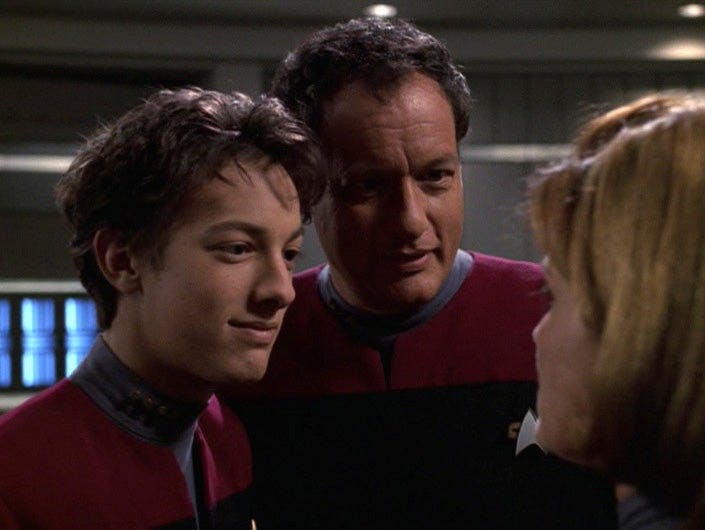
"Q2"
StarTrek.com
It's not entirely true that no one saw Janeway as a maiden or a mother. However, Q wasn't meant to be taken seriously when he tried (and failed) to seduce her into becoming the mother of his child. Instead, he came to his senses and named her godmother. And when Q Junior showed up in "," Aunt Kathy is exactly who he needs. While measuring against a low bar, Q calls Janeway "a million times better parent" than he is. To which Janeway replies, "I am not a parent!" Q factually states, "Well maybe not in the biological sense, but you're certainly a mommy to this crew..."
Where was a child-free zone, The Next Generation and Deep Space Nine had children as part of the core ensemble. Star Trek became a family-friendly show with parenthood being a recurring theme. Though on Voyager, Naomi Wildman had a mother, Samantha, who only appeared in eight episodes throughout the series, while Naomi appeared in 16.
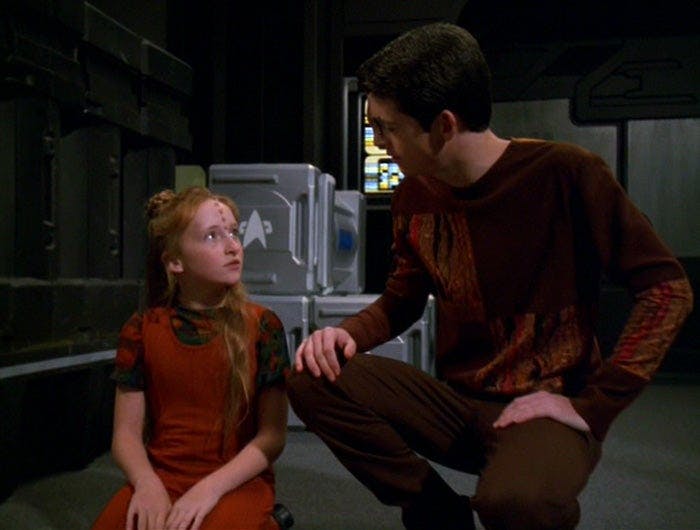
"Shattered"
StarTrek.com
For a long period, Naomi was the perfect example of a Federation child and a future cadet, with Icheb being the only one of the Borg-orphans who matched her eagerness to please Captain Janeway. The only other Star Trek child to respect and admire a Starfleet officer like that is Nog, who sought apprenticeship with Commander Sisko. While Nog admired Sisko, his apprenticeship was centered on his personal ambition to join Starfleet.
On Voyager, Naomi, Icheb, and eventually even Q Junior all wanted Janeway's personal attention. And unlike Picard, Janeway respected the children and gave them room to grow. By giving structure and stability, Janeway helped raise the Voyager children in her own way. She didn't mother any of the children. She remained their captain, their teacher, and their Aunt Kathy.
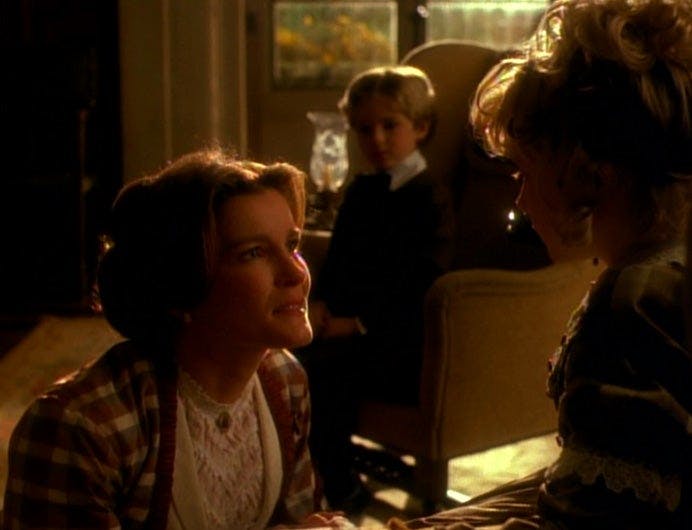
"Learning Curve"
StarTrek.com
In her free time, Janeway actually chooses the role of a 19th Century governess in the holodeck program Janeway Lambda One, in order to "get away from being captain for a while." I always smile at that notion, as if a governess isn't a caretaker and a children's captain. With the professional balance of a caring teacher, the Voyager children all look for the captain's guidance and approval.
Hologram Janeway – Training Advisor for Exploring the Greater Galaxy
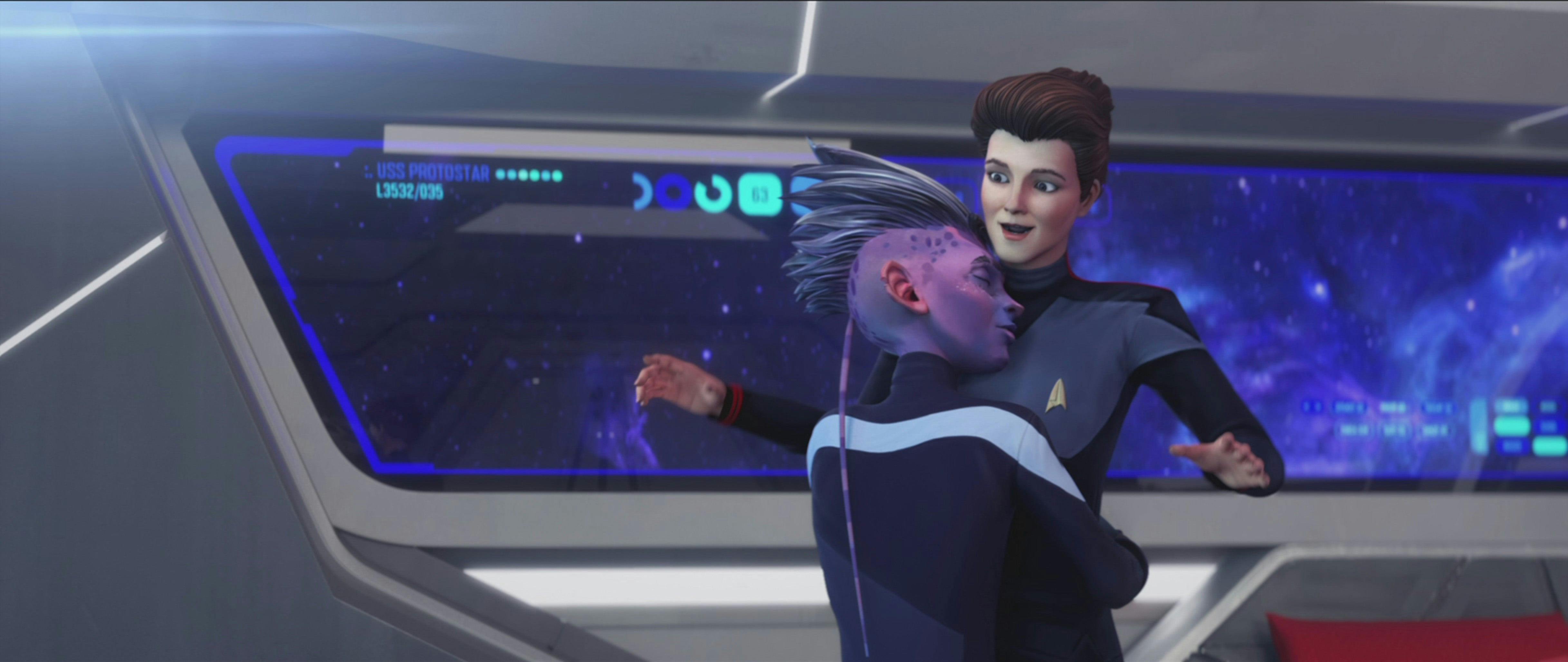
"Asylum"
StarTrek.com
Star Trek is going through a revival with the latest series , , , , and most important for this piece, .
With old and new characters entering our present-day lives, Janeway is revived, not in nostalgia like Spock, Pike, and Picard, but as the officer leading future generations of our fanbase. With Prodigy, Janeway is brought back in near perfect condition as a hologram based on one of the most decorated captains in Starfleet history. To emphasize the point, Starfleet has chosen Captain Kathryn Janeway to be the captain leading future fans to the franchise.
Janeway, not only did she drink all the black coffee in the Delta Quadrant and beat the Borg, she guided all of the Voyager's children. Janeway is the choice as Caretaker of the franchise because children listen to their teachers. She's definitely not a mom; but as captain, governess and Holo-Nanny (as Dal calls her), Captain Kathryn Janeway ensures that children, Starfleet, Maquis, Borg, Q's and delinquent runaways all become the best that they can be, the only way she knows how — the Jane-way.


